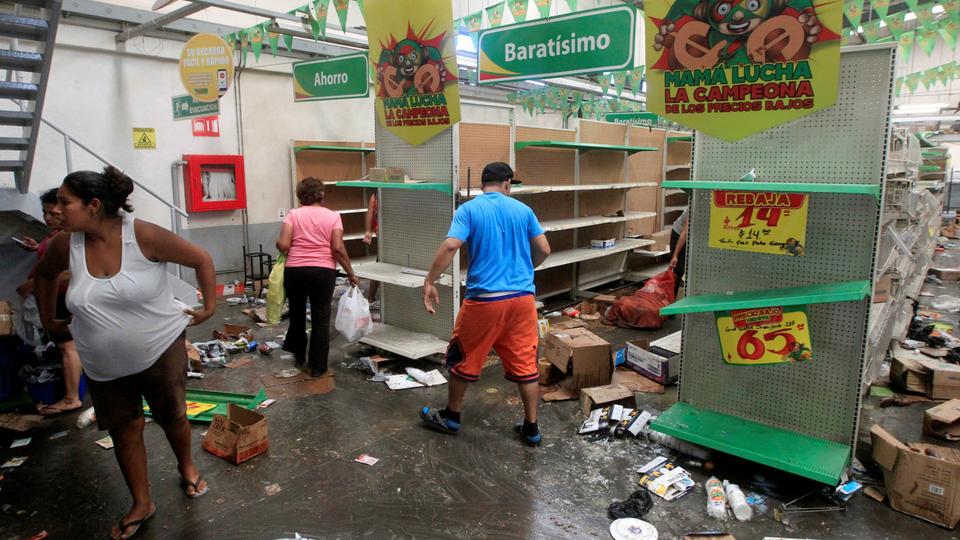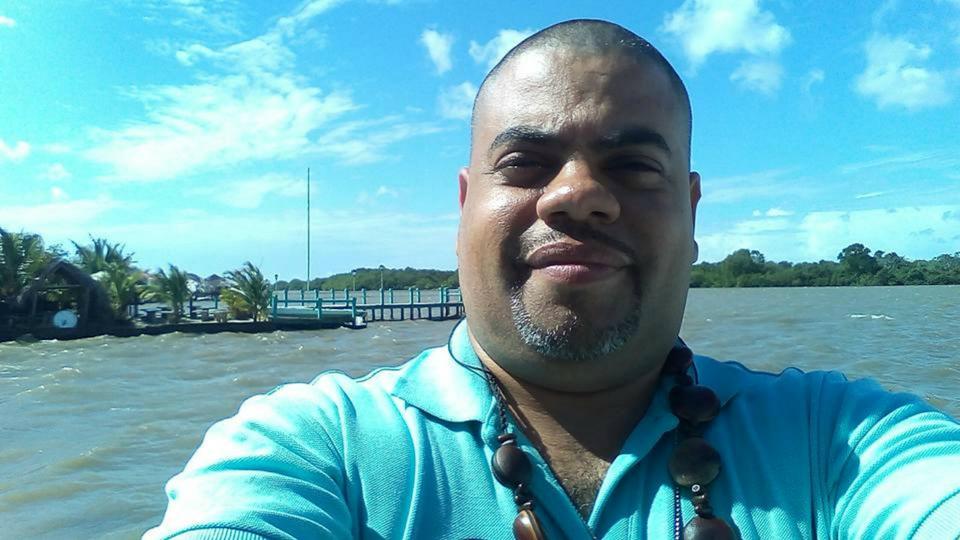Nicaragua president scraps pension law that sparked deadly protests
Nicaragua’s President Daniel Ortega made the announcement on Sunday as looting continued in the capital of Managua on the fifth day of protests that have left at least ten, but possibly more than 20 people dead.
 People walk through a shop in Managua that was looted in the wake of protests over social security reforms. (Reuters)
People walk through a shop in Managua that was looted in the wake of protests over social security reforms. (Reuters)
Nicaragua’s President Daniel Ortega has agreed to scrap a highly-controversial reform of the country’s pension law that sparked four days of violence, leaving possibly more than 20 people dead.
In talks with business leaders, Ortega said the Nicaraguan Institute for Social Security had decided to axe the reform that would have increased employee contributions and reduced benefits in a bid to tamp down on a climbing deficit.
The announcement on Sunday followed the looting of dozens of shops in the Nicaraguan capital of Managua have been looted as protests and disturbances sparked by the reforms continued into Sunday.
At least 25 other people have been killed since Wednesday according to the independent Nicaraguan Human Rights Center, though the government has acknowledged only 10 dead. It has not changed that figure since Friday.
The center’s director, Vilma Nunez, warned that there was “a lot of misinformation” going around that made obtaining the figure difficult.
“We are in the streets asking for Ortega and his wife to go. This has already gone beyond the social security issue. Here there have been dead, wounded, and he does not even apologise for his killings or the savage repression against the people,” said Mauri Hernandez, one of thousands of demonstrators at a central rotunda.
Images broadcast by local news media showed looted shops in the sprawling Oriental Market district and at least one Walmart.
Police apparently did not intervene, in contrast to what had been a heavy-handed response to the demonstrations, in which dozens have been injured or arrested.
State-controlled media blamed protesters for the looting, while critics speculated that it was being allowed in order to pressure the business sector, which has set conditions for talks with the government, including an end to the harsh crackdown.
Absence of leadership
“We are seeing social chaos in Nicaragua provoked by the absence of government leadership, and the crisis has been combined with poverty, and that in any society is a time bomb,” sociologist and analyst Cirilo Otero said.
“It is believable that the government is promoting (the looting) to put pressure on private enterprise to give in to dialogue even if the violence does not stop, and the cost could be very high,” he added.
From the Vatican, Pope Francis said he was “very worried” about the situation in the Central American nation and joined local bishops in seeking an end to all violence.
The disturbances broke out in response to President Ortega’s effort to shore up the troubled social security system with a combination of reduced benefits and increased taxes. They appear to have expanded to include broader anti-government grievances.
Ortega had said on Saturday that he would agree to negotiate on the social security reforms so that there is “no more terror for Nicaraguan families,” but he said the talks would be only with business leaders.
He was rebuffed, with the business association saying there could be no dialogue unless Ortega’s government “immediately ceases police repression.”
Soldiers armed with rifles stood guard at public offices in Managua, as well as in the northern city of Esteli. The army said it was “providing protection to entities and strategic sites.”
Police on Thursday said one 33-year-old officer had been shot dead.
Bus line suspended
Nicabus, an international bus line with links to Costa Rica and Honduras, said it had suspended services due to the violence.
He also seemed to try to justify the tough response by the government and allied groups, accusing demonstrators, most of them university students, of being manipulated by unspecified “minority” political interests and of being infiltrated by gangsters.
“What is happening in our country has no name. The kids do not even know the party that is manipulating them. … Gang members are being brought into the kids’ protests and are criminalizing the protests. That is why they are put at risk,” Ortega said.
Those remarks appeared to fan the flames, as soon afterward thousands of people spilled back into the streets in seven cities.
On Saturday, journalist Angel Gahona was reporting live via Facebook on protests in the southeastern city of Bluefields when he was killed by a gunshot. Some local media reports said a police sniper was suspected to be responsible.
 Angel Gahona, the journalist shot and killed during a live broadcast from the town of Bluefields, Nicaragua is seen on this undated picture obtained April 22, 2018 from social media. (Reuters)
Angel Gahona, the journalist shot and killed during a live broadcast from the town of Bluefields, Nicaragua is seen on this undated picture obtained April 22, 2018 from social media. (Reuters)
 People walk through a shop in Managua that was looted in the wake of protests over social security reforms. (Reuters)
People walk through a shop in Managua that was looted in the wake of protests over social security reforms. (Reuters) Angel Gahona, the journalist shot and killed during a live broadcast from the town of Bluefields, Nicaragua is seen on this undated picture obtained April 22, 2018 from social media. (Reuters)
Angel Gahona, the journalist shot and killed during a live broadcast from the town of Bluefields, Nicaragua is seen on this undated picture obtained April 22, 2018 from social media. (Reuters)